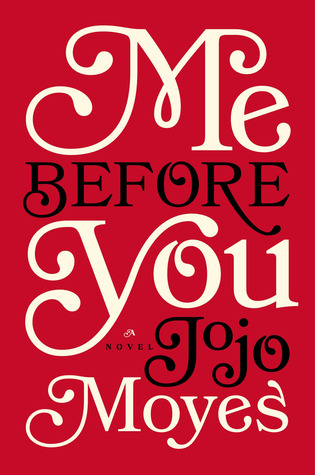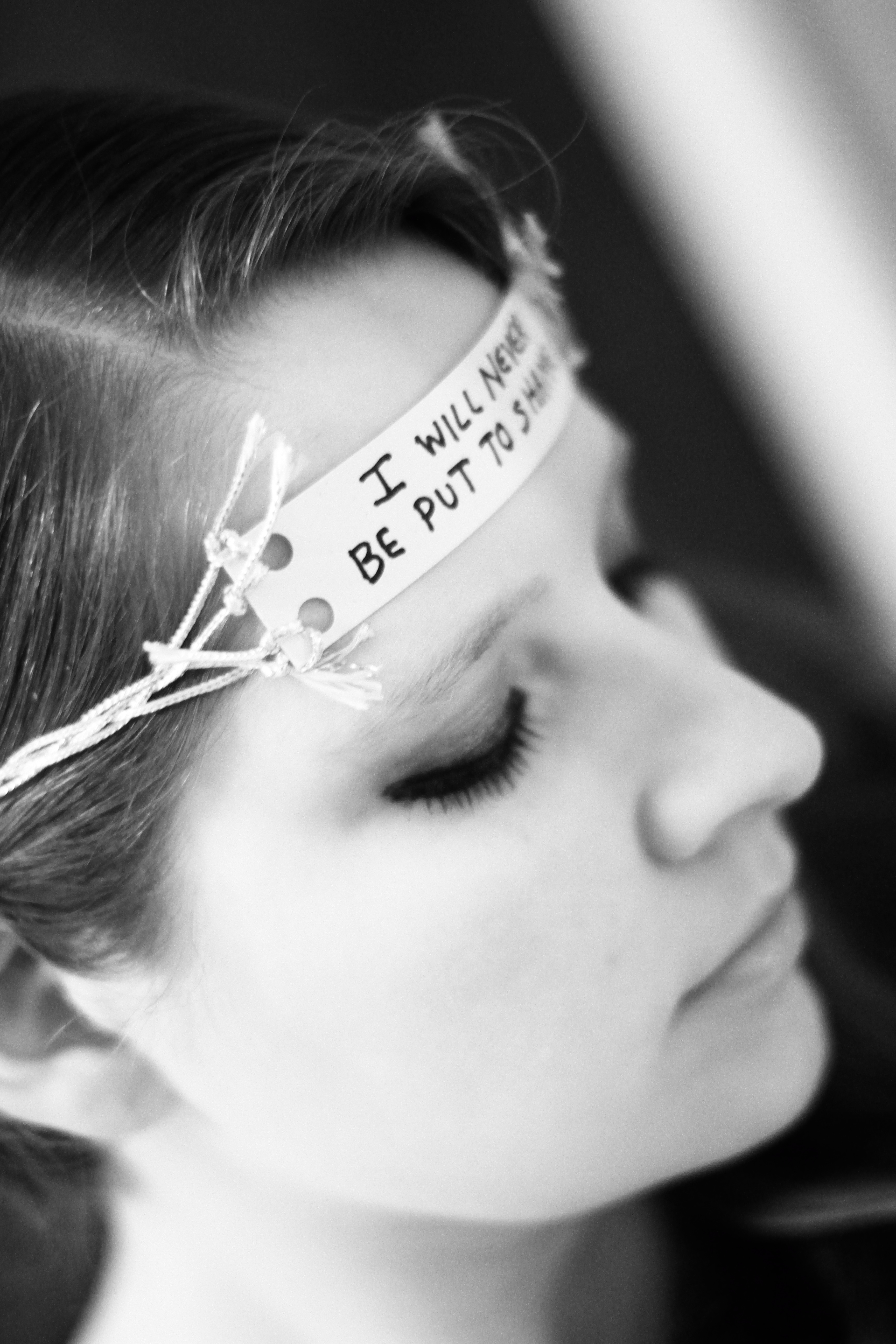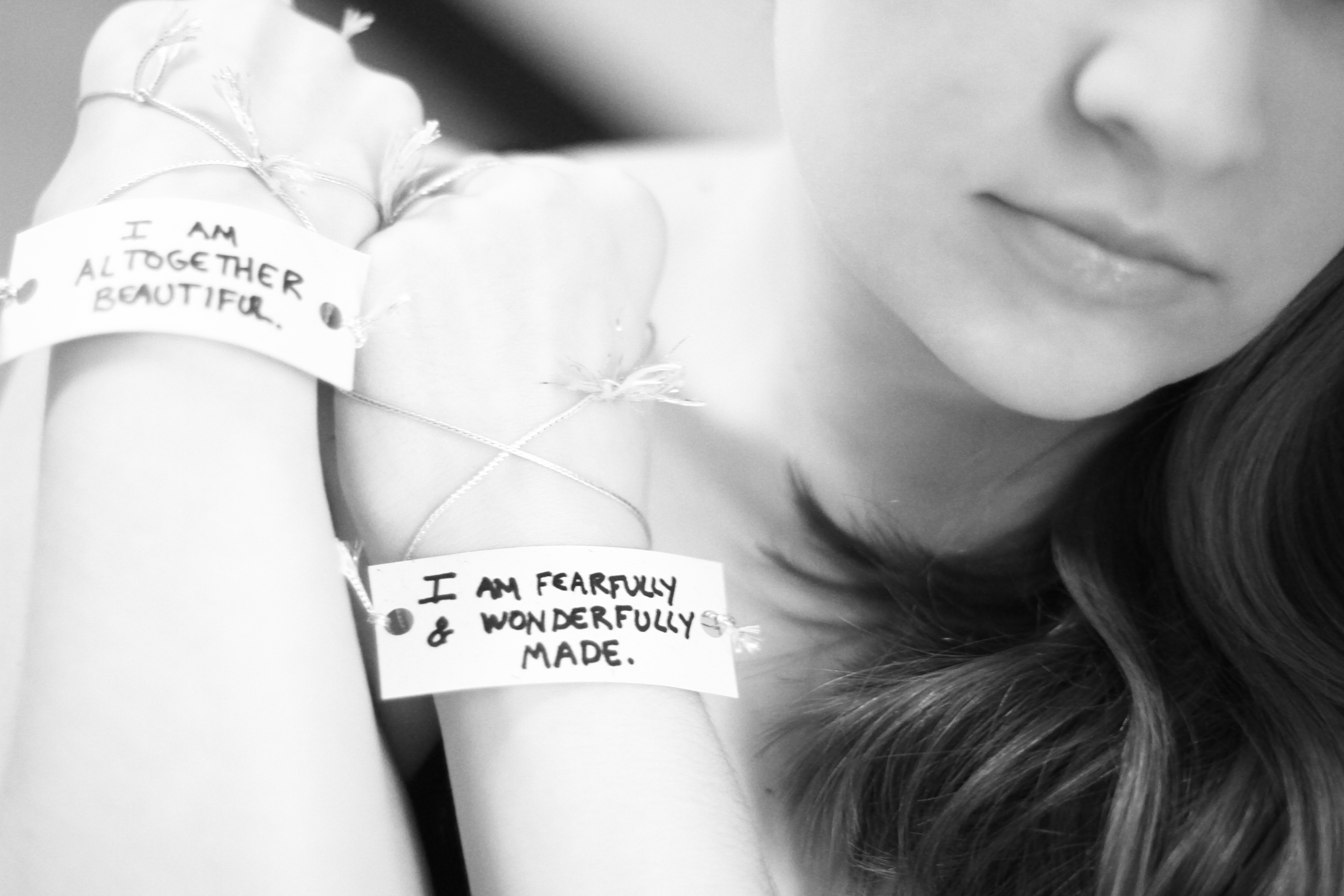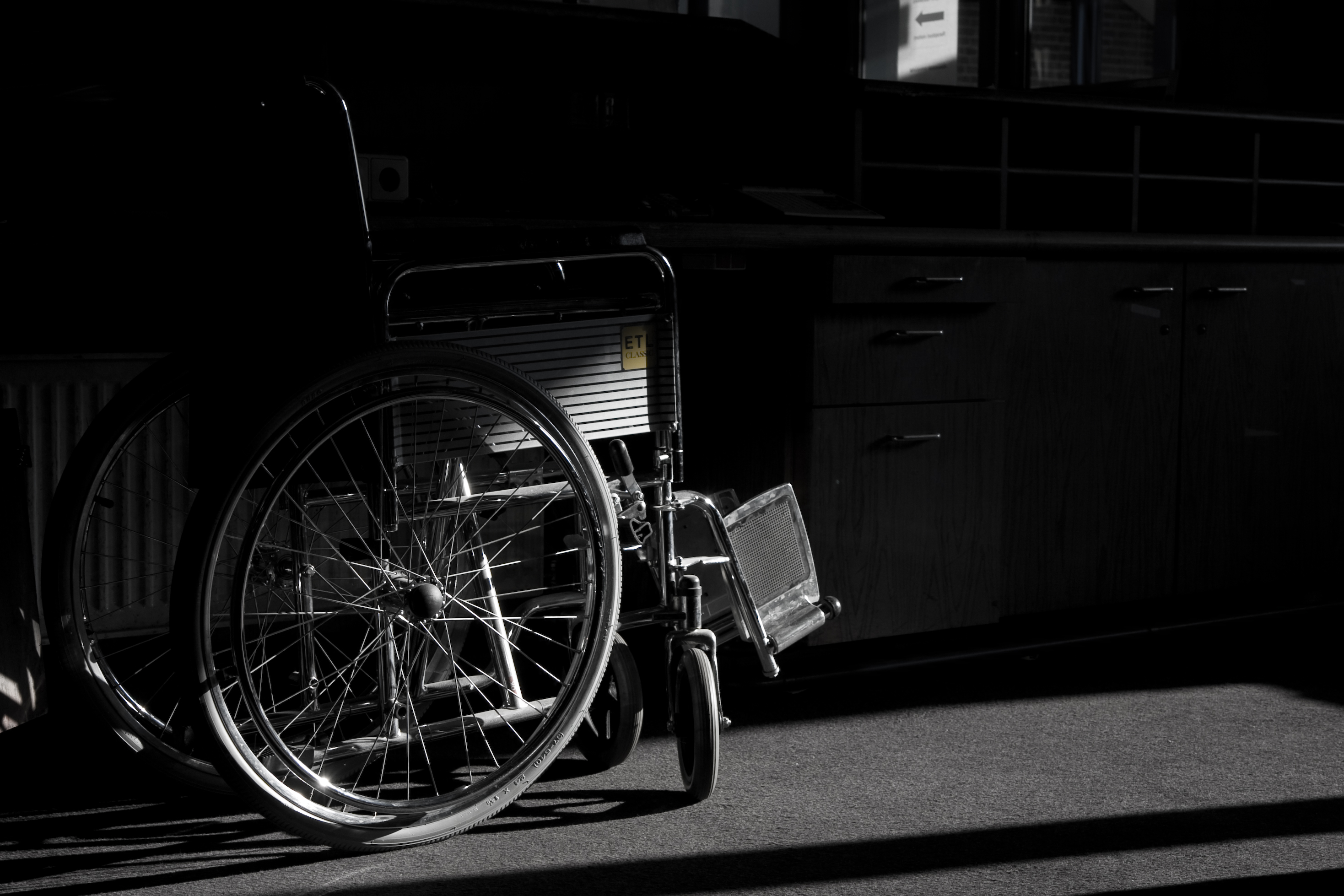 Upon finishing Jojo Moyes’ popular novel Me Before You, I was heartbroken. But it wasn’t “a heartbreaker in the best sense” as promised by the New York Daily News. It was the kind that left me feeling helpless and sick—literally, like I might throw up, or punch someone.
Upon finishing Jojo Moyes’ popular novel Me Before You, I was heartbroken. But it wasn’t “a heartbreaker in the best sense” as promised by the New York Daily News. It was the kind that left me feeling helpless and sick—literally, like I might throw up, or punch someone.
A friend loaned me a copy, mentioning that the book dealt with disability and love. I forgot about it for a couple of weeks, until I saw a preview for the movie, released this month. The story features a young woman named Louisa Clark, whom the back cover describes as “an ordinary girl living an exceedingly ordinary life.” Louisa finds work as a caretaker for Will Traynor, a man who becomes a quadriplegic after an accident. From the preview, the two appear to fall in love, and yet Will also seems to be contemplating assisted suicide.
As a quadriplegic myself, paralyzed from the chest down since the age of 6, I value writing that subverts common disability stereotypes. I willed this book not to portray a spinal cord injury as a fate worse than death.
“Please,” I prayed, “Not another Million Dollar Baby.”
And so I read. In the novel, after being sexually assaulted at the age of 20, Louisa barely ventures beyond her hometown. Will, a rich, handsome businessman, spent his life prior to the accident engaging in extreme sports, traveling the world, and bedding beautiful, leggy blondes.
While getting to know Will, Louisa learns that he plans to commit suicide at the end of six months. She and his family are determined to prevent this. Louisa makes it her mission to show Will how beautiful and good life can still be. They attend concerts, go on picnics, visit art exhibits, and even take a dream vacation together. Through these excursions, Louisa and Will eventually fall in love.
During their last night at a beach resort, Louisa tells Will she wants to spend her life with him. But he rejects her proposal; he doesn’t want to be a burden to her and he hates living with his disability. He says,
You don’t know me, not really. You never saw me before this thing. I loved my life, Clark. Really loved it … I led a big life … I am not designed to exist in this thing—and yet for all intents and purposes it is now the thing that defines me. It is the only thing that defines me. (325)
These words, written by an able-bodied woman, are weightier in the mouth of a disabled (albeit fictional) man. Smoke and mirrors perhaps, but the illusion is effective enough for the book to be a New York Times Best Seller for 76 straight weeks and counting.
In the end, Will goes through with his suicide at a clinic in Switzerland, freeing everyone around him, including himself, from the burden of his disabled flesh. And although they are unhappy, Louisa and Will’s family come to respect his choice. In fact, he convinces them that it is the only choice he has been permitted to make for himself since his accident. As a final act of love, he leaves his fortune to Louisa. The book closes with her sitting outside of a café in Paris, finally inspired to live her life to the fullest.
Ultimately, Moyes uses Will’s suicide to transform him into a romantic hero and the able-bodied masses call it beautiful.
Numerous essays and blogs criticizing this portrayal of disability in Me Before You already exist (including this especially comprehensive critique), but there are two important points I would like to make.
First, all of the characters who try to convince Will to live make the argument that life can be good in spite of his disability; I would contend that my life is often good because of my disability. Second, this book argues that Will lived a big life and simply can’t accept a smaller one; I would contend that some of the biggest things that life has to offer at first appear to be small. These apparent blind spots on Moyes’ part inhibit her from crafting a more nuanced look at disability.
While most of the novel is from Louisa’s point of view, multiple characters receive their own chapter-long perspective shifts, including Will’s mother; his father; his medical caregiver, Nathan; and Louisa’s sister. Notably absent from this list, however, is Will himself. Moyes never bothers to put the reader inside of Will’s mind, instead largely shaping him through the interior thoughts and opinions of the non-disabled people around him. This, to me, is a grievous defect.
Therefore, to remedy this and to explore the aforementioned blind spots, I wrote my own brief, alternate ending to Moyes’ novel from Will’s point of view.
NOTE: This alternate ending takes place during Louisa and Will’s final night at the beach resort after Louisa confesses her feelings to Will and he rejects her, announcing that he is still planning on going forward with his suicide.
WILL
“I wish I’d never met you.”
Those were the last words Louisa said as she stumbled away from me on the beach. Drunken strangers found Nathan and brought him to me, and he helped me to bed. He cleaned me; he changed me; he tucked me in, as though I were an infant. The only thing our routine lacked was a bedtime story. And then he went to his room.
Now, propped up on my right side where he left me, I lay still (what else was I going to do?) and thought. Thinking was pretty much the only thing I could do by myself these days.
The storms from the previous night left a breeze in their wake and I could feel the cool air through the crack in the balcony doors. My nose itched.
Bested again, I thought. You’ve won this time, Itch.
My eyes were heavy, but I fought sleep. What was it she said to me that night at the wedding? That I never would have noticed her if I weren’t disabled? She called herself “one of the invisibles.” And she was right. I never would have seen her, in my other life. We never would have met. Louisa was only made visible to me after—no, not after, because of—my accident.
These seemed to be two incongruous concepts. On one hand, there was the life I lost, filled to the brim with ocean vistas, European cobblestone, and steep mountainsides that left my whole body screaming for rest and oxygen, while still craving more exertion. In those moments, I knew every single cell was alive and active. On the other hand, there was Louisa. Louisa in her red dress at the concert. Louisa at the wedding, her arms draped around my neck, her fingers pressed into my skin as I spun us around and around on the dance floor, her perfume-like joy spinning along with us. There was the man who could walk; there was the man who loved Louisa. These two Wills could never occupy the same universe.
On the beach, I could still hear the other hotel guests carousing. A woman’s high-pitched laughter at some inaudible joke. The crackle of distant fireworks. The shrieks they provoked. I wasn’t sure if I could actually taste a hint of acrid smoke in the air, or if it were just my imagination—my mind’s nose, if that were even a thing—but the effect was convincing enough.
Louisa’s life was so small compared to my old life. She hadn’t done a fraction of the things I’d done. While I was staking my claim at the top of Mount Kilimanjaro, the roof of Africa, she laid claim to nothing more than a closet-sized bedroom in her parents’ home and a job serving tourists at a second-rate café. It was my life’s purpose to see, to do, to conquer. And I conquered everything.
“Where there’s Will,” my friends used to joke, “There’s a way.”
Six months, I’d promised my mother after my failed suicide attempt. In that time, Louisa and my family tried to fill my days with excitement and action—a poor man’s facsimile of the life I once led. Although they were simply trying to be kind, pretending my life could be what it used to be was almost more maddening than anything else. I needed them to acknowledge that although some form of my body survived, Will Traynor was dead and would never be coming back. Trying to recreate my old life would never work.
And yet, there was Louisa.
I pictured her now on her side, asleep in her bed, knees pulled up high, clutching a pillow in her arms. Perhaps she cried herself to sleep after running from the beach to her room. Perhaps she was still awake, clenching and unclenching her hands, cursing the day we met. The thought pained me.
Louisa, the once-invisible-now-visible girl, came to love me only if I crossed that rainy street at the exact right moment two years ago.
And if Louisa herself were once invisible to me, were there other things invisible to me as well? Perhaps there was a whole host of unseen things that might now be seen. Perhaps I was so determined never to let the world pass me by that I passed the world by.
Louisa, with her crazy shoes and her black-and-yellow striped tights, lost to me if not for the accident. Entirely too small for me to see.
When did I decide that small was inherently less? I wondered.
I must have been young. Even as a child, my parents’ wealth afforded me such extravagant possibilities—winter vacations skiing in the Alps, weekly equestrian lessons. I never bothered with anything that seemed ordinary.
I spent so much time criticizing Louisa over the past six months for all of the things she was afraid to do, jealous that she could still live the big life I lost—if she would only seize it. But was I guilty too? Was I afraid to live an ordinary life?
The first time she shaved my face clean, her fingertips grazed my skin, adjusted the fold in my collar. She barely touched me while she worked. At the time, this was just more evidence of my own physical failings. I couldn’t even shave my beard without help. But there was a measured way she wiped my face when she was done, with the same care one might reserve for handling something precious. Would I have ever let a woman touch me like that if I weren’t disabled? Did I invest in obvious thrills at the expense of humbler joys—the ordinary that only through experience might reveal itself to be extraordinary, just like Louisa herself? My wealth and privilege allowed me to see everything I might ever want to see—except what was right in front of me.
Alone, in that dark hotel room, the noise from the beach finally quieting, I questioned for the first time whether all dependence should be counted as loss. Or was the breaking that took place more like a seed that must shatter completely before new life can emerge?
As this thought came over me, the faint rhythmic ticking of a leaky faucet kept pace with my pulse. For two years, I resented every single heartbeat. But now, there were entire days I didn’t feel like dying.
If the old me could scale a 90° peak, couldn’t I find a way to continue just a bit further? Would my own life be the one summit I never reached?
Louisa, my visible girl. What other things have I missed?
I bandied on for so long about how this was my choice to make. But the thing about having a choice is that you can also make the wrong one.
The somber blues of the night would soon be giving way to subtler tones. And those subtler shades would soon be giving way to sunlight that would break through the thinly veiled windows. When that happened, Nathan would come and dress me, and help me into my wheelchair, and I would press my good hand forward on the motor’s control and roll myself over the dense hotel carpet until I reached the lobby. Louisa would be waiting for me, unlikely to make eye contact, but my own eyes would stay on her. They would follow her even as she avoided mine.
How odd that only through the loss of one ability did I gain a new type of sight.
I couldn’t promise her forever. I couldn’t promise I wouldn’t choose to end my life before sickness or time stepped in. But I could give her at least six more months. Not to appease her, like I did for my parents, but because it was my choice to make.
These next six months, I wouldn’t live a shadow of the life I once had, trying and failing to revive the past. But perhaps there was new life hidden inside the smaller-seeming things if I were willing to look for it, and perhaps those six months would give way to six more, and those six to another, until they kept expanding and growing and my life would be big again and I wouldn’t need to keep count anymore.
After all, I was Will. Maybe I would find a way.
 When taking your first Fiction Form and Technique class, you can pretty much count on three things: half a dozen stories involving an “epic” party in high school, one to two overly-opinionated, Hemingway-worshiping students who totally know more than the professor, and one noir story where the murderer was the drunk detective the whole time. My first short story ever submitted was a Greek Myth Sirens spin-off that ended in suicide—not great.
When taking your first Fiction Form and Technique class, you can pretty much count on three things: half a dozen stories involving an “epic” party in high school, one to two overly-opinionated, Hemingway-worshiping students who totally know more than the professor, and one noir story where the murderer was the drunk detective the whole time. My first short story ever submitted was a Greek Myth Sirens spin-off that ended in suicide—not great. Paralysis is so often a metaphor. A simile to express shock or fear. It is a word you use, but you probably don’t mean it the way that I mean it. I mean to say my spinal column was damaged after my six-year-old body jackknifed during an automobile accident and that was the last moment I felt the skin below my chest or moved my legs of my own volition. Unless you count feeling my skin with my fingers and lifting my legs with my arms to move them where I would have them go. I do count this. Do not discount this.
Paralysis is so often a metaphor. A simile to express shock or fear. It is a word you use, but you probably don’t mean it the way that I mean it. I mean to say my spinal column was damaged after my six-year-old body jackknifed during an automobile accident and that was the last moment I felt the skin below my chest or moved my legs of my own volition. Unless you count feeling my skin with my fingers and lifting my legs with my arms to move them where I would have them go. I do count this. Do not discount this. Look at me. My life is not a ruined life. My brother’s life is not a ruined life, even though you don’t want it. My flesh is numb, but it is still here. I am beautiful even when you don’t believe it. Even when I don’t believe it. I may be the person you carry from the burning building, down flight after flight before the walls crumble in on us. You may want to discount me. But I am alive. My lungs fill with air and my chest expands and my palms press into the tread of my tires and I keep pushing. My body propels me forward in ways my words alone cannot.
Look at me. My life is not a ruined life. My brother’s life is not a ruined life, even though you don’t want it. My flesh is numb, but it is still here. I am beautiful even when you don’t believe it. Even when I don’t believe it. I may be the person you carry from the burning building, down flight after flight before the walls crumble in on us. You may want to discount me. But I am alive. My lungs fill with air and my chest expands and my palms press into the tread of my tires and I keep pushing. My body propels me forward in ways my words alone cannot.

